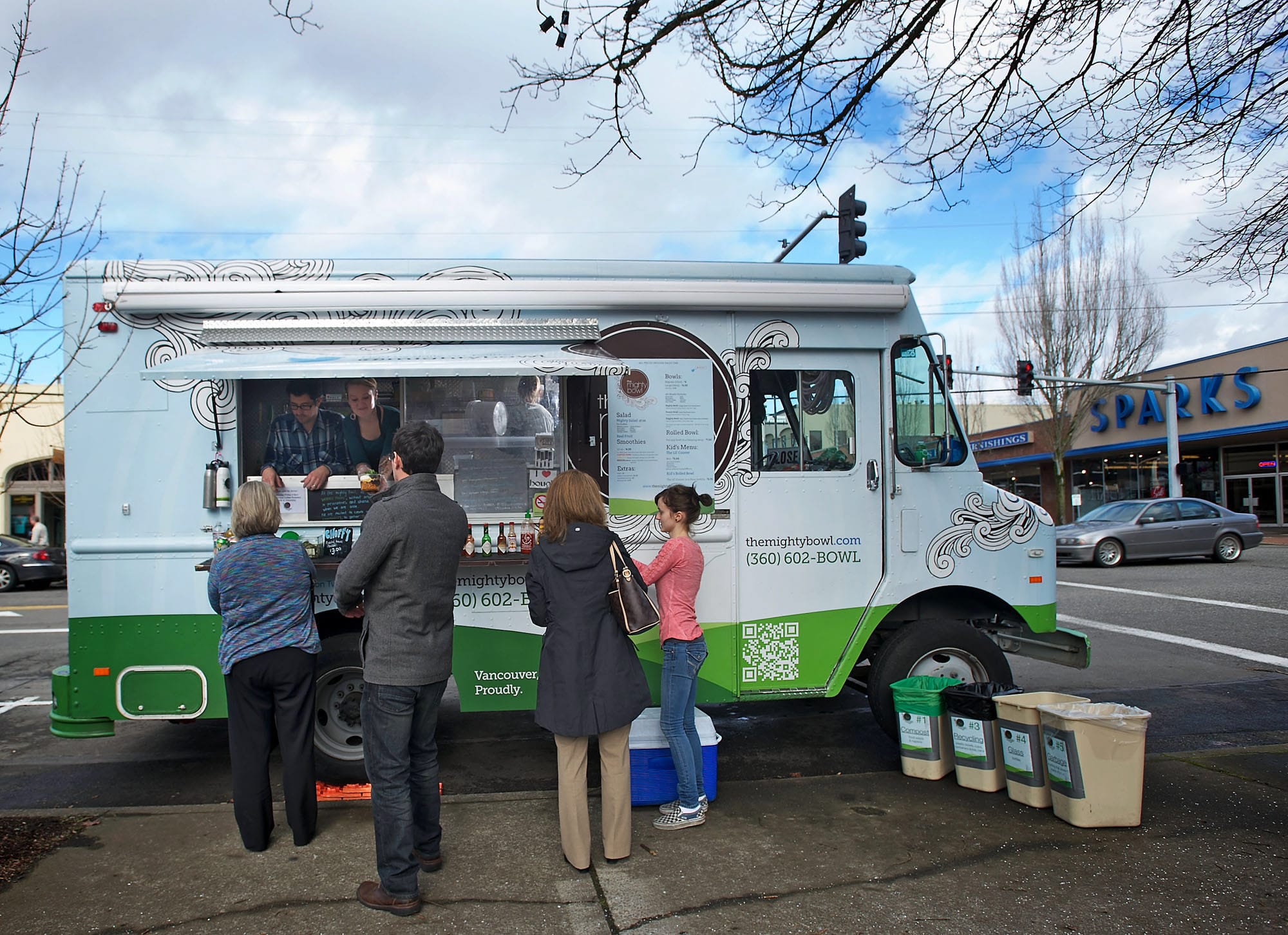To those who love a taste of city life, there’s something about the presence of food carts that makes a city feel real.
But food carts haven’t established much of a foothold in Vancouver, even in the pedestrian-friendly downtown district that has the county’s largest concentration of office workers and some out-of-town visitors. And despite the desire of some downtown promoters and city planners to create urban ameneties that would appeal to young entrepreneurial workers, Vancouver appears far from embracing even a semblance of the food cart culture that has become entrenched in Portland.
“You need a lot of foot traffic, which Portland has,” said Gary Bickett, a Clark County Public Health department program manager in charge of food cart inspections. “I don’t think we’re there yet.”
Bickett isn’t alone. Heidi Batchelor and her husband Donny have operated food carts in Clark County for more than a decade. They’ve managed to make a living mostly at special events, but Batchelor recalls establishing a sidewalk burrito cart at Esther Short Park in 2002.




